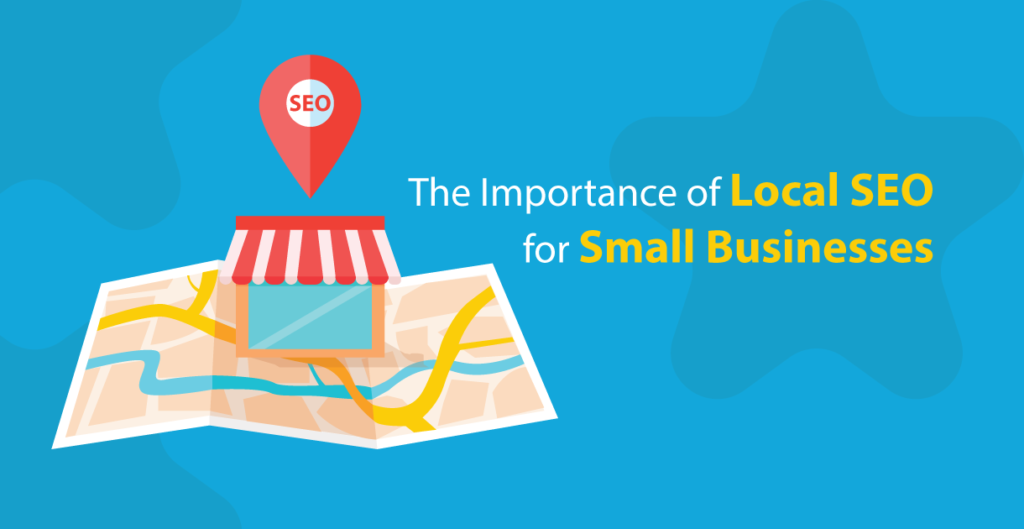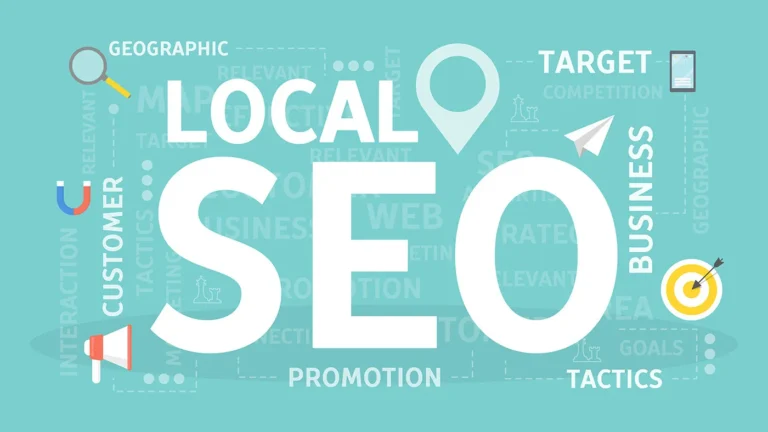Why Local SEO Matters for Small and Local Businesses
Table of Contents
Toggle
Introduction
In today’s highly competitive digital marketplace, local visibility can be the key to success for small and local businesses. This is where Local SEO steps in, offering a tailored approach to attract customers within your vicinity. Whether you run a bakery, a boutique, or a digital marketing agency offering services like SEO, PPC, or social media management, optimizing your online presence for local search is crucial. This blog explores why Local SEO Matters for Small and Local Businesses, its benefits, and how to implement effective strategies.
Why Local SEO Matters for Small and Local Businesses
Local SEO is a specialized branch of search engine optimization focusing on improving a business’s visibility in localized search results. For small and local businesses, appearing prominently in search results is vital, as most customers look for nearby services or products online before making a purchase decision.
Enhances Local Visibility
- Local SEO ensures your business appears in Google’s Local Pack, Maps, and localized search results.
- For example, a digital marketing agency targeting “SEO services in [City Name]” can reach potential clients easily with proper local optimization.
Targets High-Intent Audiences
- Local searches often have a high intent to purchase. For instance, when someone searches for “digital marketing services near me,” they are likely looking to hire a nearby agency soon.
Levels the Playing Field
- Small businesses can compete with larger corporations in local markets by focusing on specific regions and niches.
Improves Trust and Credibility
- Reviews, accurate business listings, and a strong local presence build trust among potential customers.
Benefits of Local SEO for Small and Local Businesses
- Enhanced Mobile Reach
With the rise in mobile searches, local SEO ensures small businesses can connect with users searching for services on the go
- Increased Foot Traffic
Businesses like restaurants, salons, and retail stores see a direct correlation between local SEO efforts and foot traffic. For example, optimizing for terms like “best backlink services in [City Name]” helps attract customers looking for nearby options.
- Cost-Effective Marketing
Unlike paid ads, local SEO focuses on organic strategies like Google My Business (GMB) optimization and local keyword usage, offering long-term results at a lower cost.
- Stronger Online-to-Offline Conversions
Local SEO bridges the gap between online visibility and in-store visits, ensuring potential customers find your business first.
Key Components of Local SEO for Small and Local Businesses
To harness the power of local SEO, businesses need to focus on several core elements:
Google My Business (GMB) Optimization
- A well-optimized GMB profile is the cornerstone of local SEO.
- Include accurate business details, photos, and service descriptions. For example, a digital marketing firm could list “SEO, PPC, and Social Media Management” as their services.
Local Keywords
- Incorporate geographically relevant keywords like “[City Name] digital marketing services” or “near me” searches in website content and metadata.
Online Reviews
- Positive reviews improve trustworthiness and impact local search rankings. Encourage satisfied customers to leave reviews on platforms like Google or Yelp.
Localized Content
- Create blog posts and web pages addressing local needs, such as “Top 5 Digital Marketing Trends in [City Name].”
NAP Consistency
- Ensure your Name, Address, and Phone Number (NAP) are consistent across all directories and platforms.
Local Citations
- Get your business listed in local directories like Yelp, Bing Places, and industry-specific platforms.
Mobile-Friendly Website
- With most local searches conducted on mobile devices, a responsive design is essential for capturing traffic.

Steps to Implement a Local SEO Strategy
Audit Your Local SEO Presence
- Use tools like Google’s Business Profile Manager to evaluate your current visibility.
- Ensure your listings are accurate and updated.
Conduct Local Keyword Research
- Tools like SEMrush and Ubersuggest can help identify high-traffic local keywords. For example, “affordable SEO services in [City Name].”
Create Location-Specific Landing Pages
- Develop pages targeting specific regions, such as “[City Name] Digital Marketing Services,” to cater to a hyper-local audience.
Optimize for Voice Search
- Many users rely on voice-activated devices to find local services. Use conversational phrases like “Where can I find a digital marketing agency near me?”
Build Local Backlinks
- Collaborate with other local businesses or participate in community events to earn backlinks from trusted local sources.
Real-Life Example: Local SEO for a Digital Marketing Agency
Imagine a small digital marketing agency offering SEO, PPC, and content marketing in Los Angeles. Here’s how Local SEO could transform their business:
- Google My Business Optimization: The agency lists detailed service descriptions, business hours, and client testimonials on its GMB profile.
- Targeting Local Keywords: By targeting “digital marketing agency in Los Angeles,” they attract clients looking for nearby experts.
- Localized Content: They publish blogs like “Top SEO Tips for Los Angeles Businesses,” establishing themselves as local authorities.
- Review Management: Regularly responding to client reviews boosts their credibility and engagement.
Common Mistakes to Avoid in Local SEO
Ignoring Negative Reviews
Not addressing negative feedback can harm your reputation. Always respond politely and resolve issues promptly.Overlooking Mobile Optimization
A poorly optimized mobile site can lead to high bounce rates, especially for users searching on the go.Keyword Stuffing
Using local keywords excessively can lead to penalties. Focus on a natural, user-friendly approach.
Future of Local SEO
Voice Search
Voice-based searches are on the rise, requiring businesses to adapt by creating conversational content.AI-Powered Local Results
Search engines are increasingly using AI to deliver personalized local results.Visual Search Integration
Tools like Google Lens are enabling users to find local businesses through images, making visual content optimization critical.
Conclusion
Local SEO is not just a trend—it’s a necessity for small and local businesses striving to remain competitive in their markets. By focusing on strategies like Google My Business optimization, local keyword integration, and customer reviews, businesses can achieve higher visibility and better customer engagement.
For the latest updates and strategies, visit Top Submission Sites your trusted source for digital marketing insights. Local SEO holds the potential to connect businesses with their communities and unlock growth opportunities that resonate beyond the digital realm.


